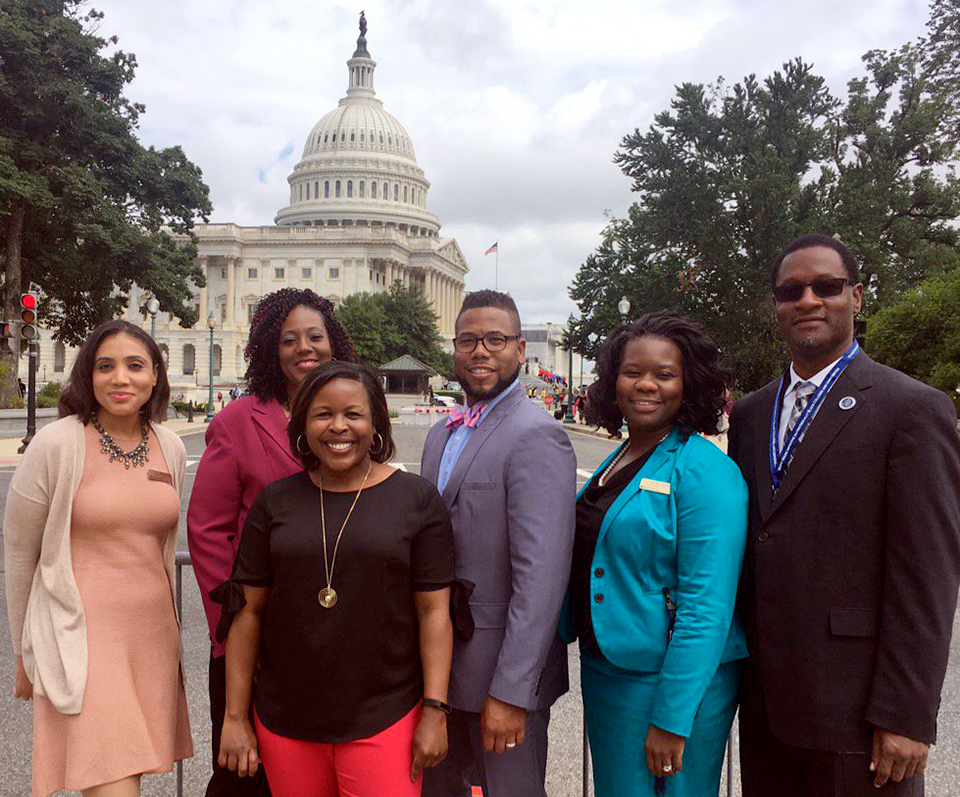22 Aug2017
By JTE Insider

Have you seen the JTE Insider blog managed by the Journal of Teacher Education (JTE) editorial team? Check out the following interview with the authors of a recent article. This blog is available to the public, and AACTE members have free access to the articles themselves in the full JTE archives online – just log in with your AACTE profile here.
This interview features insights from the article “Seeing Is Believing: Promoting Visual Literacy in Elementary Social Studies,” by Kristy A. Brugar of the University of Oklahoma and Kathryn L. Roberts of Wayne State University (MI). The article, which appears in the May/June issue of JTE, is summarized in the following abstract:
22 Aug2017
By Amy Vessel

This article is the second in a series of three showcasing the transformation of preservice field experiences at Louisiana Tech University. The views expressed in this post do not necessarily reflect the views of AACTE.
In fall 2016, Louisiana Tech University’s Clinical Residency Center established an 8-year partnership with the Louisiana Tech Athletics Council to collaboratively mentor students in TEAM (Teacher Educators and Mentors) Model schools, strengthening connections between the university and the community while exposing more college students to the teaching profession.
The program started after head men’s basketball coach Eric Konkol began seeking ways to plug his team into the community, followed very quickly by head baseball coach Lane Burroughs. The coaches had the desire to increase their teams’ connections with area schools and sought the expertise of the College of Education to establish quality partnerships.
To meet this goal, we developed the “Dogs With a Cause” program, which pairs athlete mentors with elementary students in a character-building literacy curriculum based on award-winning children’s books. This program is a logical extension of our TEAM Model, which engages multiple schools and districts in collaborative partnerships that support a full-year residency for teacher candidates.
21 Aug2017
By Renée A. Middleton
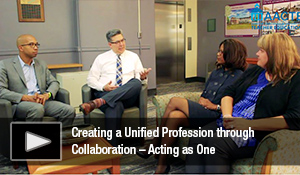
Since 2014, AACTE has featured the innovative work of several member institutions, including Ohio University in 2016, in its Research-to-Practice Spotlight Series highlighting clinical teacher preparation and partnerships. The video interviews in this series provide advice and examples for other schools of education looking to adopt a more clinically based model to advance high-quality learning. A commitment to high-quality learning is a core value of AACTE, both on members’ campuses and in PK-12 classrooms.
Teacher candidates, like everyone else, learn best when they take an active rather than passive role in their education, and clinical preparation empowers them to engage actively. In addition to building candidates’ professional skills and pedagogical content knowledge, many clinical experiences fully embed interns in the host school’s community and cocurricular activities. This practice helps develop confident, engaged teachers who are skilled advocates for effective teaching and learning in their communities.
15 Aug2017
By Michael Maher

The views expressed in this post do not necessarily reflect the views of AACTE.
The Legislative Long Session in North Carolina this year was, in many ways, a productive one for education, generating a number of consequential bills that became law. Included in the slate was the reintroduction of the Teaching Fellows program, thanks to a collaborative effort led by Senator Chad Barefoot and the North Carolina Association of Colleges and Teacher Educators (NCACTE).
14 Aug2017
By Rodrick Lucero

The AACTE team has embarked on a new adventure and we can’t wait to share it with you!
This undertaking is engaging all of us in a significant self-study – not unlike what you do on your campuses for quality assurance and continuous improvement – using an improvement science model. Over the next few months, the team will conduct a deep audit of our operations, looking at internal protocols and processes along with membership structures, programs and services, and resources. AACTE is working with the rpk GROUP consulting firm to assist us with this project. This internal work is simultaneous with a comprehensive member survey that is being released next month. These concurrent efforts will empower AACTE as it anticipates its 70th anniversary in 2018.
14 Aug2017
By JTE Insider

Have you seen the JTE Insider blog managed by the Journal of Teacher Education (JTE) editorial team? Check out the following interview with the author of a recent article. This blog is available to the public, and AACTE members have free access to the articles themselves in the full JTE archives online – just log in with your AACTE profile here.
This interview features insights from the article “Collaborating to Address the Challenge of Academic Language,” by Trace Lahey of York College, City University of New York. The article, which appears in the May/June issue of JTE, is summarized in the following abstract:
Teacher candidates rely on mentors working in their college-based teacher education programs and mentors working in the college’s partner schools to support their development as future teachers as well as their Teacher Performance Assessment (edTPA) preparations.
14 Aug2017
By AACTE
Lynn M. Gangone, President and CEO of the American Association of Colleges for Teacher Education (AACTE), today issued the following statement regarding the racial violence that occurred two days ago in downtown Charlottesville:
“AACTE strongly condemns the acts of hate, bigotry and racial violence that took place during the “Unite the Right” rally on Saturday. This tumult has devastated the local community of our member institution University of Virginia (UVA) and has deeply impacted our nation and the world. We support UVA President Teresa Sullivan’s official statement that the acts “…of the many groups that have converged on Charlottesville this weekend contradict [American] values of diversity, inclusion, and mutual respect.” AACTE also considers an outbreak of insular behavior in the setting of a university paradoxical as institutions of higher education characterize enlightenment, progression, and democracy.
11 Aug2017
By Jerrica Thurman
This week, more than 150 attendees are hard at work in Minneapolis, Minnesota, participating in AACTE’s Quality Support Workshop. The diverse group of educators from the Midwest and beyond are engaging in deep-dive sessions enhancing their programs and planning around continuous improvement, assessment, accreditation, and quality assurance.
During the event, which runs through Saturday, the interactivity has extended well beyond the conference rooms as attendees share posts on social media, connect at receptions, and pose for photos in the hallways. View sample event posts and photos below, follow along on Twitter at #AACTE_QSW, and stay tuned for a complete event summary next week!
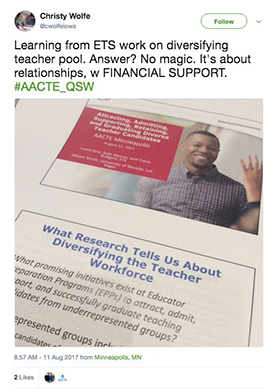
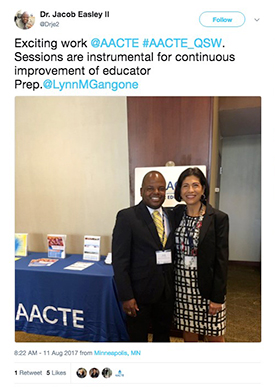
11 Aug2017
By Shawn Karim and Kristin McCabe
During AACTE’s membership renewal season, some of our most active members are sharing what AACTE means to them. For this article, AACTE intern Shawn Karim interviewed Board of Directors member Monika Williams Shealey, who is dean of the College of Education at Rowan University (NJ). Learn more about membership here.
Monika Williams Shealey (front) poses with Holmes Scholars in front of the U.S. Capitol building during AACTE’s 2017 Washington Week.
08 Aug2017
By Kristin McCabe
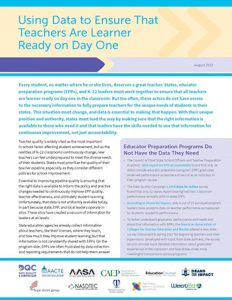
A new policy brief from the Data Quality Campaign presents recommendations for states to support educator preparation through better sharing and use of information – not just for accountability but also for continuous improvement. The report, Using Data to Ensure That Teachers Are Learner Ready on Day One, calls attention to current data challenges faced by educator preparation providers (EPPs) and offers suggestions and examples for states to improve the situation.
“State education agencies already collect information about teachers, like their licenses, where they teach, and how much they improve student learning, but that information is not consistently shared with EPPs,” the brief states. “On the program side, EPPs are often frustrated by data collection and reporting requirements that do not help them answer important questions about their own program quality. And a lack of publicly available information on EPP outcomes means that EPPs and their stakeholders, from prospective teachers to K-12 principals, too often must spend their own limited time and resources to collect and synthesize information that could be provided by the state.”
The report, developed in partnership with AACTE and several other partner organizations, lists the following primary challenges to using data for EPP improvement:
08 Aug2017
By Jason Wingate
The author is a member of AACTE’s Clinical Practice Commission. The views expressed in this post do not necessarily reflect the views of AACTE.
During the recent accreditation visit on my campus, my colleagues and I encountered the comprehensiveness of the new Council for the Accreditation of Educator Preparation (CAEP) standards and how difficult it is to reach those standards entirely, especially in a state that does not share PK-12 data of students and graduates. In one area, however, we thrived: Standard 2, which focuses on clinical partnerships and practice.
08 Aug2017
By JTE Insider

Have you seen the JTE Insider blog managed by the Journal of Teacher Education (JTE) editorial team? Check out the following interview with one author of a recent article. This blog is available to the public, and AACTE members have free access to the articles themselves in the full JTE archives online – just log in with your AACTE profile here.
This interview features insights from the article “Effects of a Multimedia Professional Development Package on Inclusive Science Teachers’ Vocabulary Instruction,” by Michael J. Kennedy, Wendy J. Rodgers, John Elwood Romig, John Wills Lloyd, and Mary T. Brownell. The article, which appears in the March/April issue of JTE, is summarized in the following abstract:
Vocabulary knowledge is vital for students’ success in school and beyond. However, students with disabilities and others who consistently score below their peers on various measures of vocabulary knowledge have difficulties in secondary-level content area courses. Because many students with disabilities are now educated primarily in general education classrooms, their teachers report needing more professional development on instructional strategies to support this population. Using a multiple-baseline design, we tested the efficacy of a multimedia, multicomponent professional development package in which middle school science teachers in inclusive classrooms promoted science vocabulary knowledge. The professional development package improved the quality of the teachers’ use of evidence-based vocabulary practices and increased the amount of time they spent explicitly teaching vocabulary in their classes.
07 Aug2017
By Amy Vessel
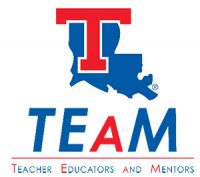
This article is the first in a series of three showcasing the transformation of preservice field experiences at Louisiana Tech University. The views expressed in this post do not necessarily reflect the views of AACTE.
With a vision of quality, rich field experiences connected to theory and practice for many years, Louisiana Tech University was well positioned to chart a path in the early years of Louisiana’s Believe and Prepare initiative to transform traditional student teaching to a full-year clinical residency. Already, the redesigned model is having a positive impact on teacher preparation and engagement, not only in our programs but throughout the state.
07 Aug2017
By Zachary VanHouten
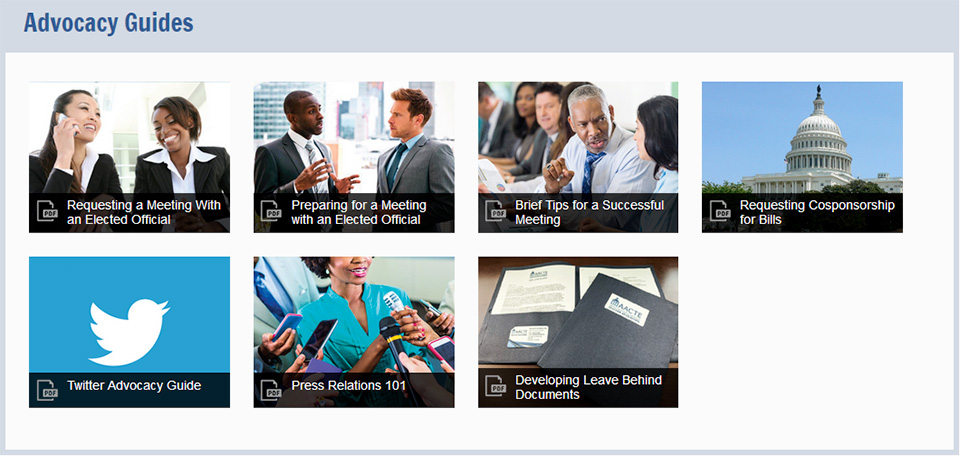
A new advocacy guide is now available for download in AACTE’s Advocacy Center. This guide, “Creating Leave-Behind Documents for Meetings With Elected Officials,” is part of our ongoing effort to provide opportunities to advance your advocacy capacity.
Through this AACTE members-only resource, you will learn of some best practices for developing materials to take to meetings with elected officials and other important stakeholders. As participants in AACTE’s Day on the Hill can attest, developing one-page “leave-behinds” for these meetings is important when time is short and you have much to share about your programs and their impact on your community and state. Leave-behind documents allow you to focus your meeting time on key talking points while supplying more in-depth information as a reference for elected officials or their staff. To learn more, check out the new guide!
31 Jul2017
By Zachary VanHouten

In case you missed July’s Federal Update webinar – available exclusively to AACTE members – it is now available on demand in AACTE’s Resource Library. Just log in to view the video recording or download the slides from July or any webinar from the past year!
The Federal Update webinars are AACTE members’ go-to source to catch up on all the developments in Washington, DC. For July, AACTE Government Relations Director Deborah Koolbeck highlighted the latest action on the Fiscal Year 2018 federal appropriations process, the implementation of the Every Student Succeeds Act, ways you can engage your members of Congress during the August recess, and more.














